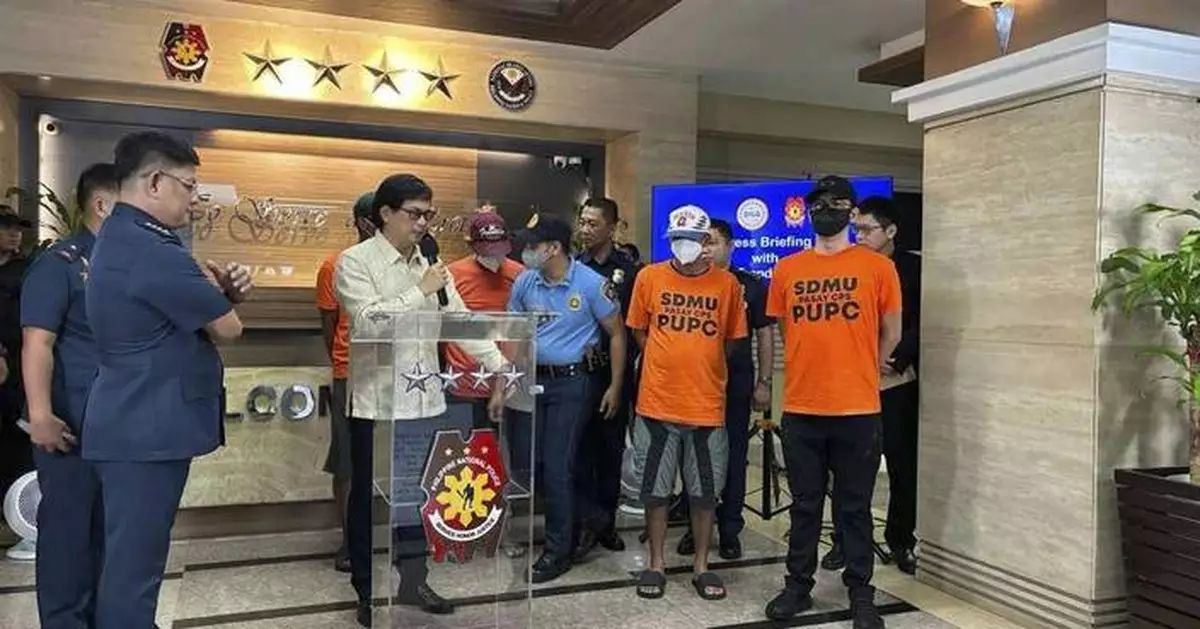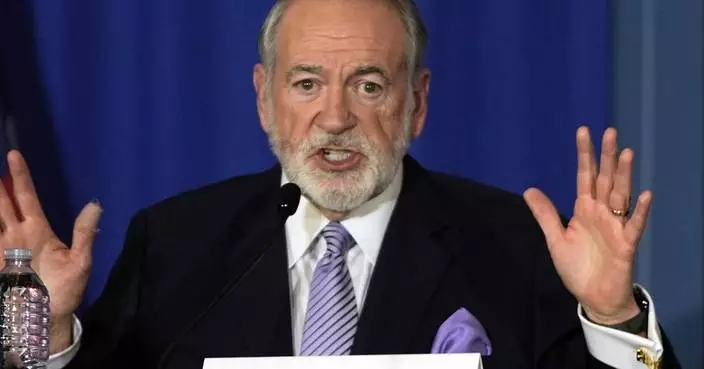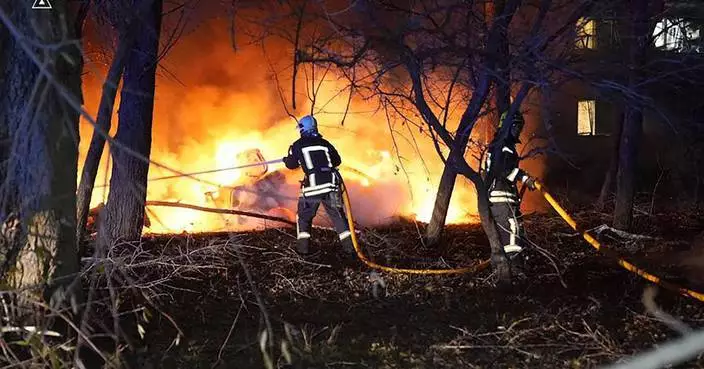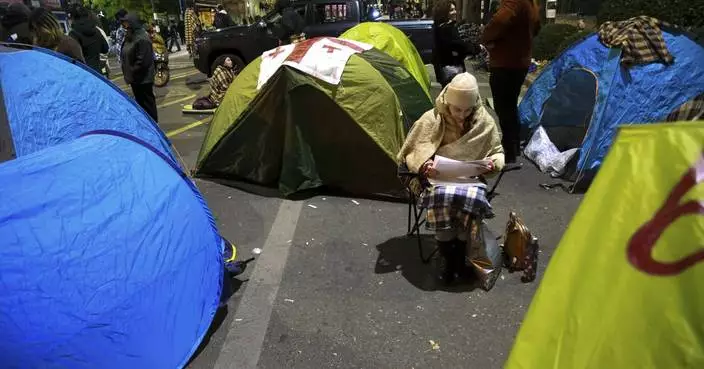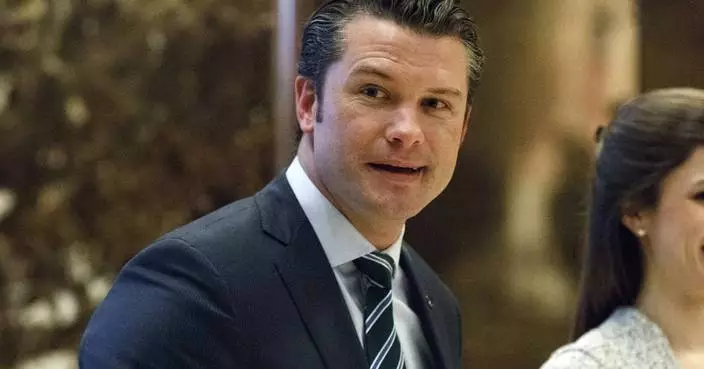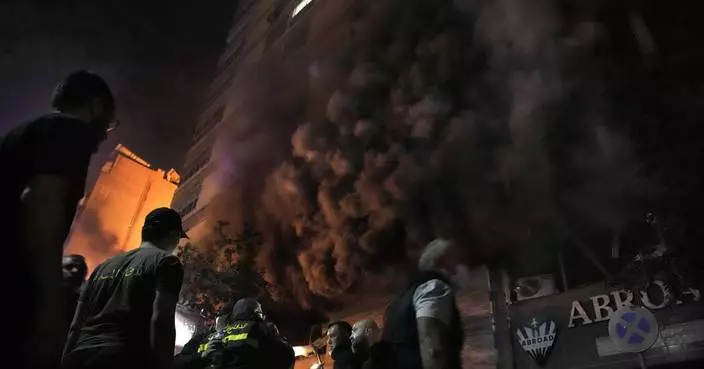MANILA, Philippines (AP) — Four police officers assigned in the Philippine capital region have been arrested for kidnapping for ransom that victimized four foreign tourists, officials said Wednesday.
Two of the officers onboard motorcycles flagged down a luxury car carrying three Chinese and a Malaysian over the weekend, while their armed civilian cohorts handcuffed and dragged the four tourists into a van. Two of the Chinese managed to escape and notified authorities, police said.
The remaining captives were beaten by the kidnappers but freed overnight after payment of a 2.5-million-peso ($43,100) ransom, Interior Secretary Benhur Abalos said. Information provided by the freed tourists and images from security cameras led to the arrest of the four police, including a police major, he said.
A security camera footage the police obtained showed the suspected kidnappers, including one who appeared to be in police uniform, stopping a car then forcibly pulling out its passengers in full view of many passing motorists. One of the passengers is seen struggling to break loose as he was shoved into a van.
“I was shocked that policemen were the ones involved,” Abalos said in a news conference, where the four police were presented in handcuffs and orange detainee shirts. “This incident is a serious breach of public trust and core values of the police force.”
Police said they're looking for at least 10 other suspects who were not police but implicated in the kidnapping.
Police said they filed criminal complaints for kidnapping, carjacking and robbery against the suspects.
Former President Rodrigo Duterte had described many members of the national police, numbering more than 230,000 nationwide, as “rotten to the core,” although he ordered them to enforce his anti-drugs crackdown that led to the killings of thousands of mostly poor suspects.
The International Criminal Court has been investigating the large-scale killings as a possible crime against humanity. Duterte and the national police chiefs who served under him had denied authorizing extrajudicial killings athough the former president had publicly threatened drug suspects with death during his presidency, which ended in 2022.
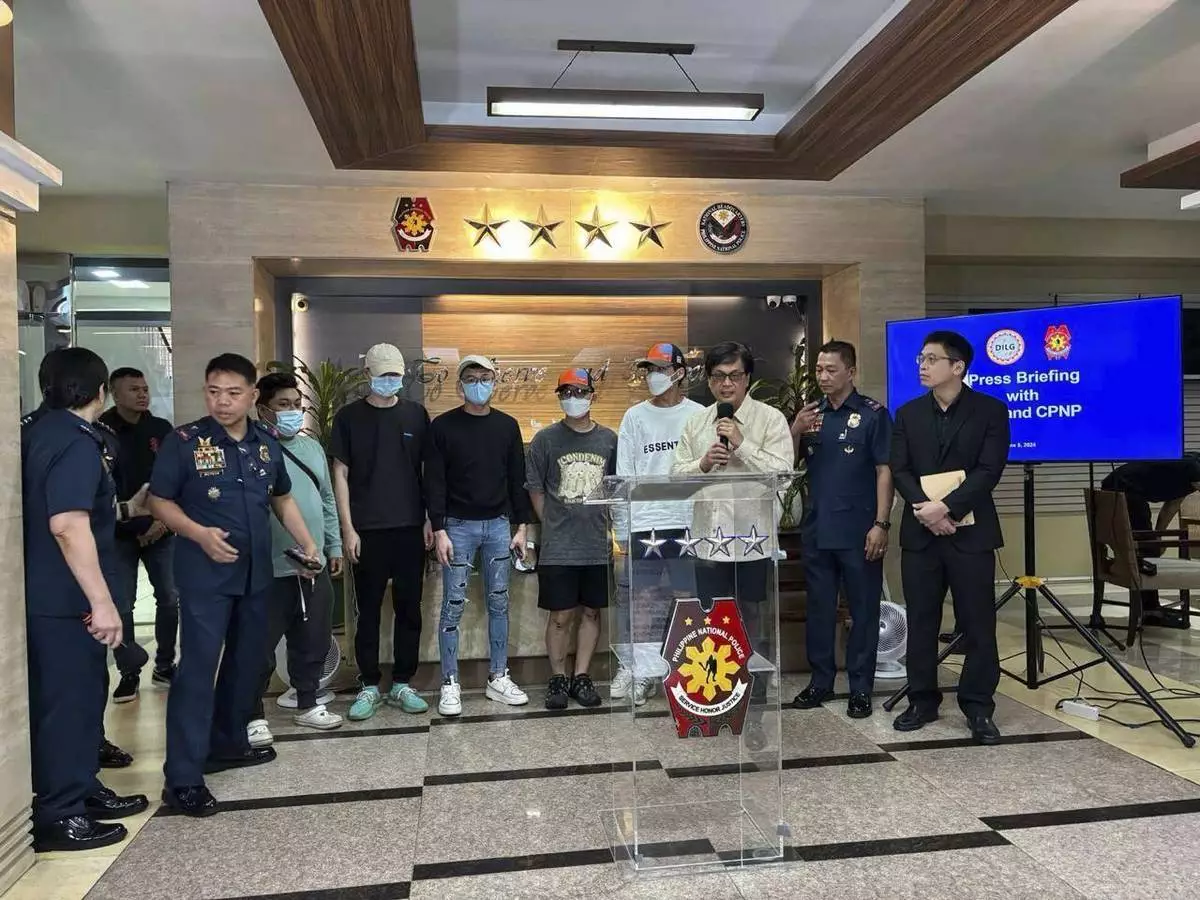
Interior Secretary Benhur Abalos speaks during a news conference in Manila, Philippines, Wednesday, June 5, 2024. Four police officers assigned in the Philippine capital region have been arrested for kidnapping for ransom that victimized four foreign tourists, officials said Wednesday. (AP Photo)
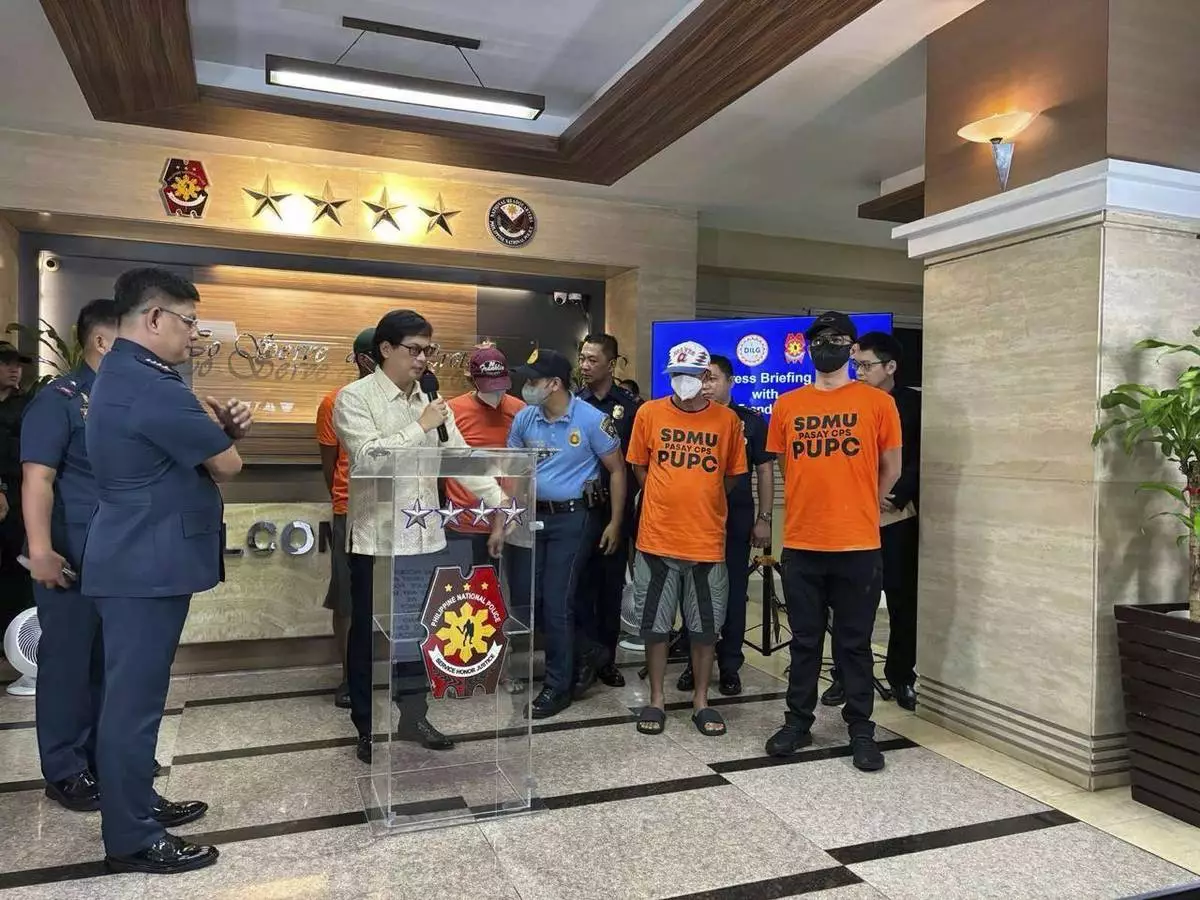
Interior Secretary Benhur Abalos speaks during a news conference in Manila, Philippines, Wednesday, June 5, 2024. Four police officers assigned in the Philippine capital region have been arrested for kidnapping for ransom that victimized four foreign tourists, officials said Wednesday. (AP Photo)
ROME (AP) — Survivors of clergy sexual abuse urged the Vatican on Monday to expand its zero-tolerance policy that it approved for the U.S. Catholic Church in 2002 to the rest of the world, arguing that children everywhere should be protected from predator priests.
The U.S. norms, adopted at the height of the abuse scandal there, say a priest will be permanently removed from church ministry based on even a single act of sexual abuse that is either admitted to or established under church law.
That “one strike and you’re out” policy in the U.S. has long stood out as the toughest in the church. It is held up by some as the gold standard, by others as excessive and by still others as imperfect but better than most. It was adopted by U.S. bishops as they scrambled to try to regain credibility following the revelations of abuse and cover-up in Boston documented by the Boston Globe’s “Spotlight” series.
Since then, the church abuse scandal has erupted globally, and survivors from around the world said Monday there’s no reason why the U.S. norms couldn’t and shouldn’t be applied universally. They called for changes in the church’s in-house canon law and reasoned they could be approved since the Holy See already approved the norms for the U.S. church.
“Despite Pope Francis’ repeated calls for zero tolerance on abuse, his words have yet to lead to any real action,” said Gemma Hickey, a transgender survivor of abuse and the president of the global survivor network Ending Clergy Abuse.
The proposal launched at a press conference was hammered out during an unusual meeting in June in Rome between survivors and some of the Catholic hierarchy's top priestly experts on preventing abuse. It was described by participants at the time as a “historic collaboration” between two groups that often talk past one another, given victims' deep distrust of the Catholic hierarchy.
The priestly participants in that meeting included the Rev. Hans Zollner, who heads the church’s main academic think tank on safeguarding; the No. 2 at the Vatican’s child protection advisory board, Bishop Luis Manuel Ali Herrera; and the Gregorian University’s canon law dean, the Rev. Ulrich Rhode as well as diplomats from the U.S., Australian and other embassies.
However, there was apparently no one from the Vatican legal office, secretariat of state or the discipline section of the Dicastery for the Doctrine of the Faith, which processes all abuse cases worldwide and largely sets policy on applying the church’s canon law — albeit in secret since its cases are never published.
As a result, it was unclear what would become of the proposed policy changes, given the U.S. norms only came about because U.S. bishops pushed the Vatican to approve them, driven by their outraged flocks and insurance companies.
Nicholas Cafardi, a U.S. canon lawyer who was an original member of the U.S. National Review Board that provided input to the 2002 U.S. norms, said globalizing that policy into universal church law “would be one of the logical next steps” for Francis to take to continue the fight against abuse.
But Cafardi, author of “Before Dallas,” about the lead-up to the 2002 Dallas bishops' meeting that approved the norms, said that some bishops today bristle at how the policy limits their authority and freedom. And in a telephone interview, he noted that even in the U.S., the norms are only still in place because the U.S. bishops keep formally asking to keep them, which he acknowledged was a “weakness” in the system.
“It seems to me that a good protection would be ‘Let’s just make it universal law,’” said Cafardi. “Once you have that law, you don’t have to worry about the bishops asking for it in country after country. It’s just the law."
However, the proposal faces an uphill battle since the Vatican in recent years has repeatedly insisted on “proportionality” in its sentences for abuse, refusing to apply a one-size-fits-all approach and taking into account cultural differences in countries where abuse isn't as openly discussed as it is in the West.
That has resulted in seemingly light punishments for even confirmed cases of abuse which, in the U.S., would have resulted in a priest being permanently removed from ministry.
Associated Press religion coverage receives support through the AP’s collaboration with The Conversation US, with funding from Lilly Endowment Inc. The AP is solely responsible for this content.
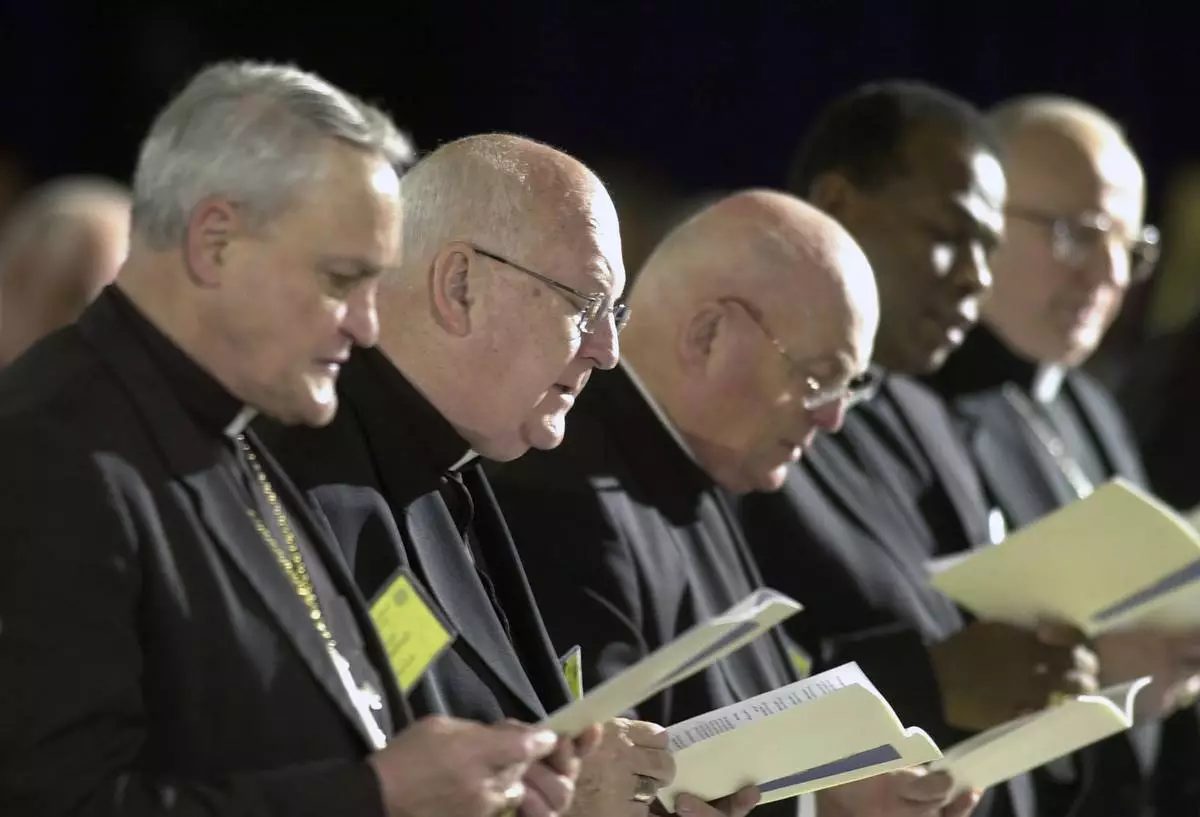
FILE - Bishops sing a hymn during the opening of Friday morning session at the U.S. Conference of Catholic Bishops' meeting in Dallas, June 14. 2002. (AP Photo/Charlie Riedel, file)
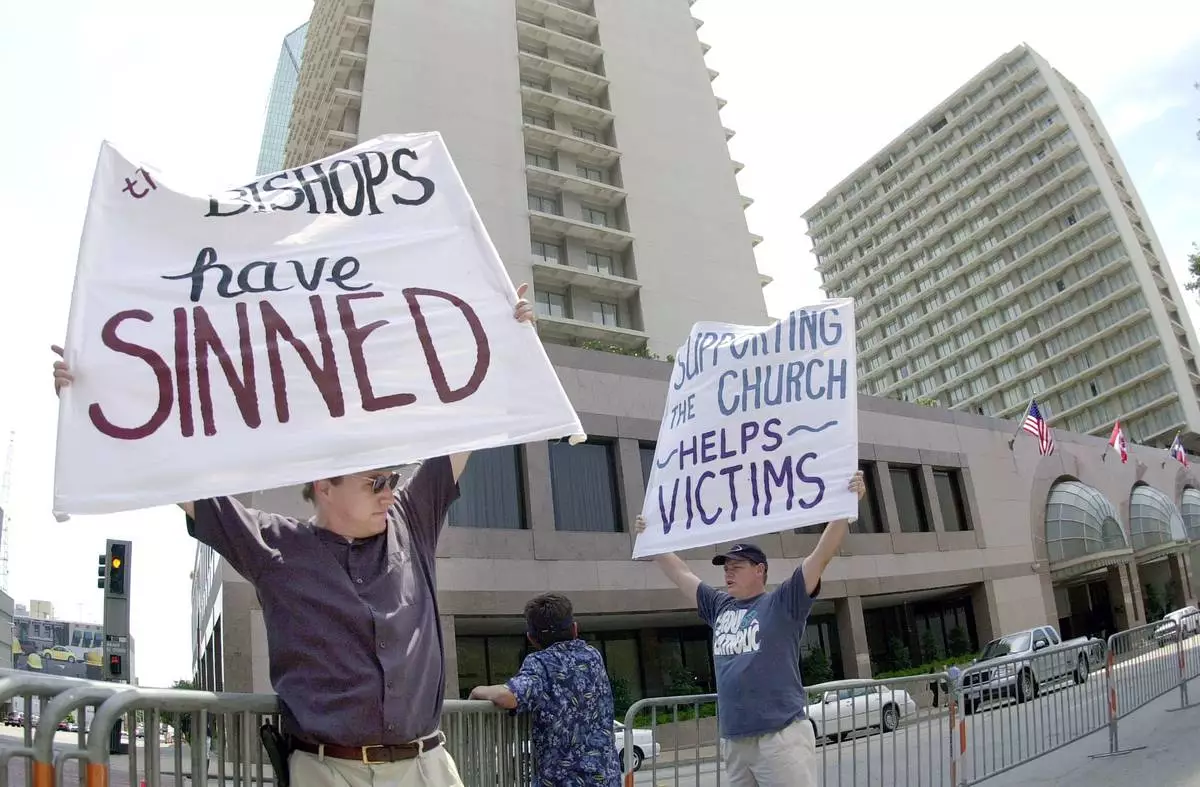
FILE - Dave West, left, and his brother Larry West, both of Fort Worth, Texas, demonstrate outside the hotel where the U.S. Conference of Catholic Bishops are meeting in Dallas on June 14. 2002. (AP Photo/Charlie Riedel, File)




